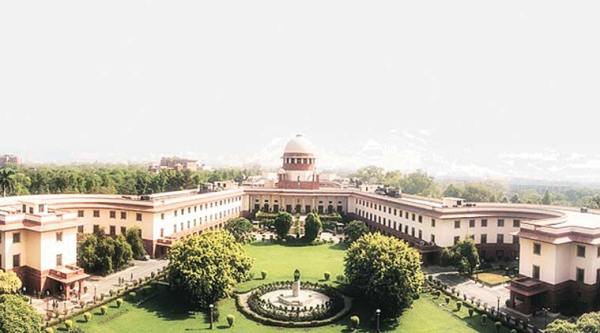 The court pointed out that the Constitution is “silent on the role of the Chief Justice”, and “there is no specific provision relating thereto either in the Constitution or even in any other law”.
The court pointed out that the Constitution is “silent on the role of the Chief Justice”, and “there is no specific provision relating thereto either in the Constitution or even in any other law”.
Reiterating that the Chief Justice of India (CJI) is the “master of roster”, the Supreme Court on Friday said it is the CJI’s authority and prerogative to allocate cases to other judges of the court. The apex court “rejected” a prayer that the expression “Chief Justice of India” should be read as meaning Collegium for the purpose of allocation of cases.
Disposing of a petition filed by senior advocate Shanti Bhushan, a bench of Justices A K Sikri and Ashok Bhushan in two separate but concurring judgments referred to earlier decisions of the apex court upholding the CJI’s role. The bench said, “having regard to the aforesaid principles laid down in the binding precedents, it is difficult to accept the prayer of the petitioner that the expression ‘Chief Justice’ appearing in the Supreme Court Rules, 2013, be read as ‘Collegium’ of five senior-most judges for the purpose of allocating the matters”.
Justice Sikri wrote, “at the same time, we feel that debate generated as a result has served its purpose.”
In his judgment, Justice Bhushan said the court agreed with the submission of Attorney General K K Venugopal that if allocation of cases and constitution of benches is given in multiple hands, it will lead to differences and hurdles in smooth distribution of work. “We are thus unable to accept the submission of learned senior counsel for the petitioner that in allocating cases and formulating benches of the Supreme Court, the word “Chief Justice” should be read as collegium, which (submission) is unfounded and is rejected”.
The court pointed out that the Constitution is “silent on the role of the Chief Justice”, and “there is no specific provision relating thereto either in the Constitution or even in any other law”. Judicial position in previous judgments of the court on this topic was based on “sound conventions” and “healthy practice” developed over time, it said.
As per these precedents, the bench observed, the CJI is empowered to exercise “leadership” on the court, and in this role he is expected to be the “spokesperson and representative” of the judiciary in its dealings with the executive, among others.
The petition expressed apprehension that keeping in view the predisposition of particular Judges, the CJI may assign cases to judges to achieve a predetermined outcome. He prayed for “devising a more rational and transparent system of listing and re-allocation of the matters to avoid any such possibilities”.
On the CJI being the first among equals, the court said the phrase is “generally relatable to judicial function designed to emphasise the fact that voices of the members of a particular bench, which may include ‘Chief Justice’, are given equal weight and that in deciding cases, the opinion of the ‘Chief Justice’ also carries same weight and is no different from those of other members of the bench. Thus, in a given case, there is a possibility that the view of the ‘Chief Justice’ may be a minority view and in that eventuality, the outcome of case would be what majority decides. The word ‘first’ in the aforesaid expression signifies only the fact that the ‘Chief Justice’ is the seniormost judge of the court.
The bench said the CJI has the authority and responsibility for administration of the court, which gives him the “ultimate authority for determining the distribution of judicial work load”.
Justice Bhushan said the law laid down by the apex court earlier makes it clear that allocation of business of the court by the CJI “not only flows from the constitutional provisions but is held to be prerogative of the Chief Justice, and which is a convention followed from the very beginning”.